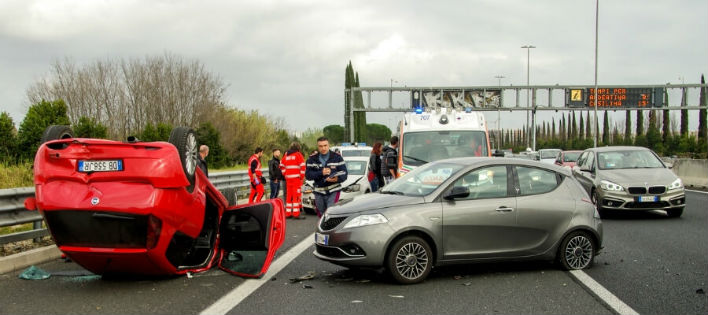
Determining who is actually liable in a car accident can be daunting, but necessary in determining if you have a case. Driving in Canada presents a multitude of challenges, especially in the winter when blizzards occur on a regular basis. Last year, roads in Ontario had a five-year high in the number of fatal accidents and a 10-year high in the number of people killed in a collision with a commercial truck.
It is impossible to eliminate risk when driving because there are so many circumstances out of your control. But you can be aware of the familiar causes of traffic accidents, so you can recognize them in your own behavior and in the driving habits of others.
Speeding is the easiest hazards to avoid in your own driving. By being vigilant, you can also see it in other drivers on the road.
Drugs and alcohol impair a person’s ability to think, and driving is as much mental as it is physical. Intoxicating substances are not the only things that can impair a person’s driving ability. Drowsiness and fatigue cause motorists to nod off behind the wheel without even knowing it.
Driving while distracted and driving recklessly, even when not impaired, also cause a significant number of accidents.
Is the Driver or the Owner of the Car at Fault After a Car Accident?
After an accident, the owner of the car that was hit may think the person driving the other vehicle is liable for any damage. But what if the driver of the other car is not the owner of the car?
When someone buys a car, he or she is required to have insurance. As a rule, vehicle insurance covers all residents of the household unless they were specifically omitted from the policy. There is also a rule of “permissive use” that covers those who live outside of the household.
Permissive use, as it relates to a car insurance policy, means the owner of the vehicle implicitly or overtly permits another individual to use the car. That individual is not specifically covered under the household’s car insurance.
In this situation, the insurance held by the owner of the vehicle covers the person driving the car. The insurance owned by the person driving the car is secondary.
If the friend (or relative) driving the car gets into an accident, the owner of the car would have to submit a claim with his or her insurance company. They would also have to pay the deductible. Regrettably, the owner of the car will have to be okay accepting an increase in insurance rates.
The owner, even though he or she was not driving, is likely to face a penalty. Insurance companies must recoup their losses. If the damage costs more than the owner’s coverage, the driver of the car (the friend) will have to pay from his or her own insurance. Contact a car accident lawyer if you are in an accident in which the owner of the car was not driving.
Help Determining Who Is Liable in a Car Accident
Our experienced car accident lawyers will be able to guide you through the many facets of your case. For example, if the driver was purposely excluded from the car owner’s insurance, the owner’s car insurance will not pay for any damage incurred by the driver. Also, if the car is stolen or used without permission, the owner of the car is not liable, and any repairs needed to the owner’s car would be paid by the owner’s insurance. It is important that you stay as informed as possible. If you have been in a car accident, an experienced lawyer can help you determine liability and if you have a case.
Disclaimer: The content of this article is a general guideline made available for educational purposes only and is not intended to be used as legal advice for the reader's specific situation nor in general. By reading our blog and website content, the reader acknowledges the above and understands there is no lawyer-client relationship created between you and Himelfarb Proszanski through this content. To get specific legal advice, we encourage you to book a free consultation with one of our lawyers to clarify the legal aspects of your situation.

